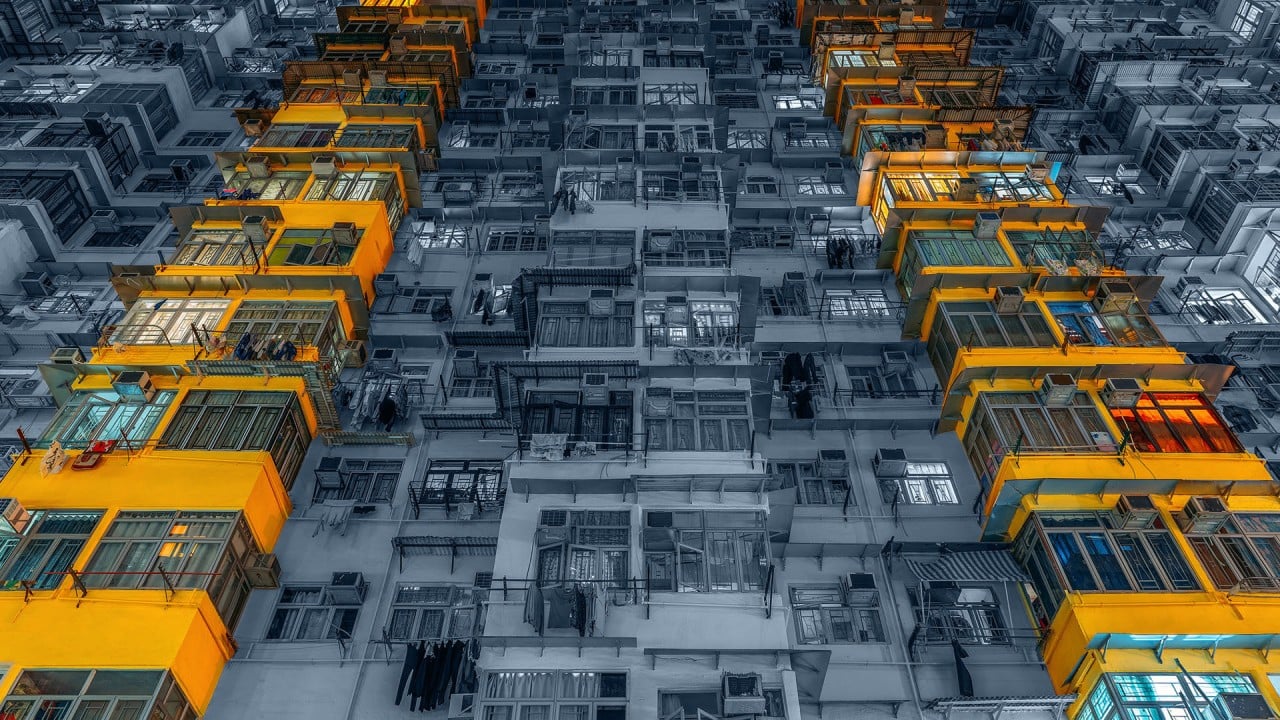
Hong Kong Urban Renewal Authority records rare HK$3.5 billion loss, marking first annual deficit in 9 years
- Urban Renewal Authority chiefs blame loss on downturn in the property market
- They also question whether existing compensation approach for redevelopment is financially sustainable
Hong Kong’s Urban Renewal Authority recorded a rare deficit of HK$3.5 billion (US$448.7 million) in the last financial year, its first loss in almost a decade, with senior officials attributing it to a downturn in the property market.
Bosses on Tuesday said the authority had already secured the Hong Kong finance chief’s approval to increase its borrowing power from the current HK$6 billion to HK$25 billion, but they questioned whether the existing compensation approach for building renovations and redevelopments was financially sustainable.
“We will need to borrow money from the 2024-25 financial year onwards but we will not borrow it all in one go,” authority chairman Chow Chung-kong told a press briefing on Tuesday, adding that it did not plan to seek funding from the government.
A major part of the deficit in the past year stemmed from acquiring old flats at high prices for redevelopment but the new homes in those projects would be sold for less than expected, given the downward pressure on the property market, the authority said.

Revenues generated from developers’ bids for its three residential projects in the past financial year were below expectations, while the authority in February also withdrew a tender for a commercial project in Kwun Tong that only received one bid.
Developers were cautious in tendering because of the volatile property market, interest rate increases and rising construction costs, Chow added.
Of the HK$3.5 billion loss for the 2022-23 financial year, HK$3 billion was due to the devaluation of some projects started in the past while the remaining HK$500 million was an operational deficit.
Authority managing director Wai Chi-sing warned that the situation could continue.
“The 10 coming projects in the next five years might generate a deficit of about HK$2 billion,” Wai said.
“We need to ask some fundamental questions, do we still agree to subsidise private owners to renovate and redevelop their old flats? Should we just rely on the revenues from selling redeveloped flats to pay for all these expenses?
“But we will not halt any projects as a result of the deficit.”
New planning rules aim to give Hong Kong firms an incentive for urban renewal
The authority, a statutory body set up in 2001 to push urban renewal projects in Hong Kong, last recorded a deficit – of HK$2.26 billion – back in 2013-14.
Under its policy, compensation, which is assessed by independent authority-appointed surveyors, is equivalent to the price of a comparable seven-year-old flat in the same district.
Wai reiterated his hopes for the government to review the mechanism.
The Development Bureau told the Post a review was possible but it had to go through comprehensive consultation and assessment, while the government would also consider other financing options raised by the authority in the future.
“The government will ensure the authority has sufficient cash flow to accommodate future redevelopment projects,” a spokeswoman said.
According to authority information, the amount of compensation offered to a homeowner 20 years ago was equivalent to about 60 per cent of the market price of a new flat. But because developers were selling homes more cheaply due to the downturn, the current difference had significantly narrowed to a few per cent, resulting in owners receiving compensation that was almost equivalent to the price of a new flat.
The authority said it had HK$23.6 billion in cash, which was insufficient to cover the HK$96 billion redevelopment costs needed in coming years, adding that the speed of urban regeneration could be limited or even slowed down by less revenue and higher development costs in future.
Hong Kong’s urban renewal chief rejects calls to help develop public flats
The “13 Streets” scheme, involving hundreds of old and dilapidated buildings across 13 parallel streets in To Kwa Wan, was one of the mega redevelopment projects that the authority said it would find hard to carry out given the huge acquisition costs.
Wai said the authority had saved up enough money for the project but would need to delay it because of the deficit recorded.
“If we push forward with this project, we will record a loss of HK$6 billion. It is significant,” he said.
Vincent Cheung Kiu-cho, managing director of Vincorn Consulting and Appraisal, said that although the authority had increased its borrowing power, it might not be sufficient to cover expenses and it should speed up the progress of its own projects to cash in earlier.
Hong Kong subsidised flat builders can still make profit, housing chief says
Cheung also said the authority should be given autonomy in deciding the level of compensation, and suggested the government change its urban renewal strategy in the long run.
“The high-interest-rate environment may continue for at least a decade, it is better to change the authority’s operating model,” he said.
But lawmaker Andrew Lam Siu-lo, a former executive director of the authority, said the statutory body had a responsibility to resettle people affected by redevelopment.
He said the compensation level could be modified after assessment, while the administration should conduct a public consultation on formulating new urban renewal policies and encourage private sector participation.



